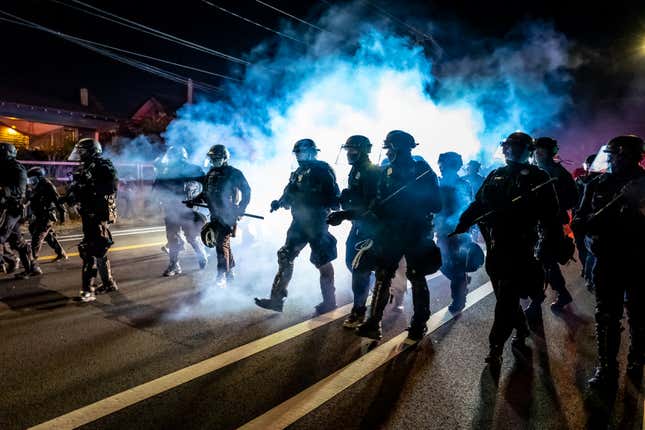
The murder of George Floyd showed how powerful phone recordings could be when showing the extent of police brutality. Since then, certain political representatives like New York Gov. Eric Adams have complained about the distance under which citizens can record their interactions with officers. Arizona Gov. Doug Ducey signed a bill on Wednesday that would make bystanders stand a minimum of eight feet away from the action, The Hill reports.
If after a police officer gives one verbal warning for someone to move back, they risk being charged with a misdemeanor and incurring fines of up to $500, jail time of up to 30 days, or probation of up to a year.
The eight feet limit is based on federal court rulings, which set that as the distance at which protesters can be kept from entrances to abortion clinics. By law, a person who is the subject of police activity can record as long as they’re not being handcuffed, searched, or subjected to a field sobriety test.
One of the only exceptions in this law is police activity on private property, where a person recording is authorized to be on the property. However, an officer can order the person recording to leave the area if the “law enforcement officer determines that the person is interfering in the law enforcement activity.”
Republican State Rep. John Kavanagh, who sponsored the bill and was a former police officer, claimed that the advancement of cell phone cameras wouldn’t hurt the ability of onlookers to record situations with this law.
“Police officers have no way of knowing whether the person approaching is an innocent bystander or an accomplice of the person they’re arresting who might assault them,” he said. “Consequently, officers become distracted and while turning away from the subject of the encounter, the officers could be assaulted by that subject or that subject could discard evidence or even escape.”
The Department of Justice is investigating the Phoenix police department over allegations that officers use excessive force and abuse people experiencing homelessness.
Phoenix activist Rev. Jarret Maupin feels the Arizona law was made to dilute the power of police accountability that previous videos have brought.
“Proximity is not a luxury in documenting the actions of officers who engage in acts of brutality,” Maupin said. Sometimes the victims and the bystanders have no choice but to be within the proximity that the bill now prohibits.”

